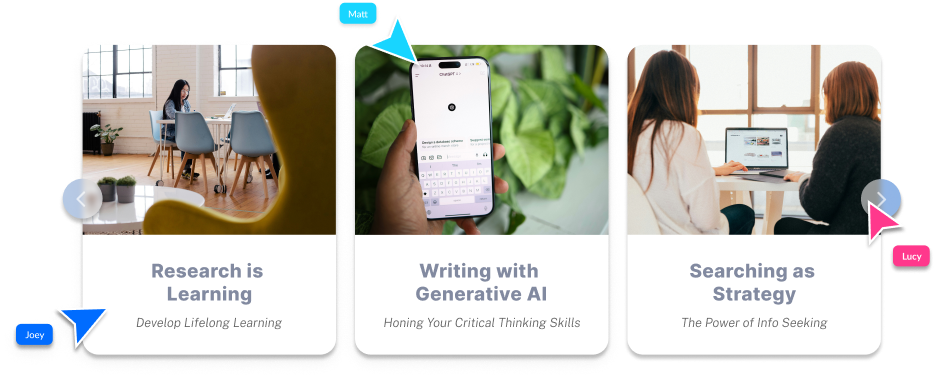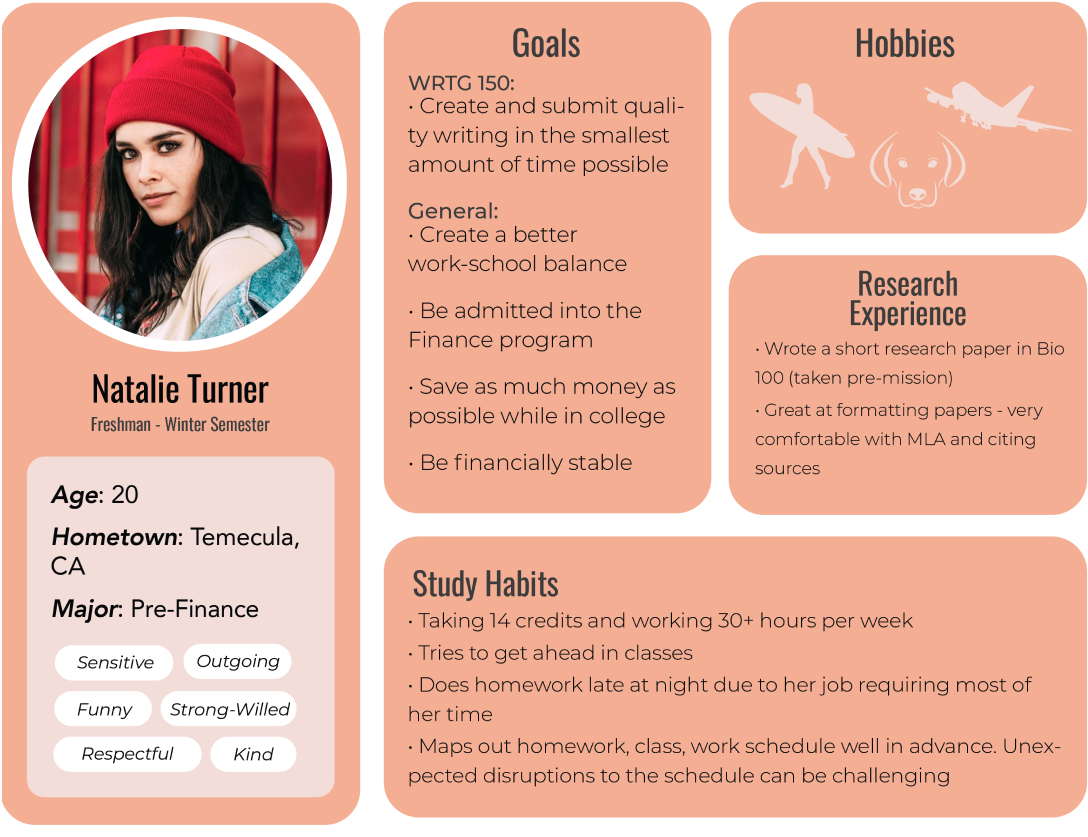✏️ WRTG 150 Course Design


Designing Learning Experiences for Research Excellence
Writing 150 serves as a foundational GE course required of all BYU undergraduate students prior to entering their majors. In partnership with faculty and library staff, I developed instructional modules designed to enhance critical thinking, research literacy, and academic writing. These modules are implemented at scale, reaching over
10,000 students annually
.
View WRTG 150 Modules
Date
Nov 2022 - Dec 2023
Methodologies
Design Thinking
Flipped Classroom
Motivation
Stakeholders
Suzanne Jullian
Leanna Fry
Impact
10,000 Students/year
Client
Brigham Young University
Tools
Canvas LMS
Genially
Brightspot
Figma
Asana/Trello
The
PROBLEM
Students enrolled in Writing 150 frequently encounter challenges with the research process due to a lack of alignment between the course curriculum and library instruction. This misalignment contributes to inefficiencies and a disconnect that hinders students’ ability to engage meaningfully in research activities.
The
LEARNING
SOLUTION
🖥️ Learning Product
Course & Library Website 7 Learning Modules
👩🏽💻 Serving
10,000 students annually All university majors

<iframe src="https://wrtg150.lib.byu.edu/wrtg150" width="100%" height="600" style="border: none;"></iframe>
View WRTG 150 Modules
The Design Process
I utilized the
ADDIE
learning model; A look into what the project entailed across the many changes, iterations, and explorations!





Research & Discovery
Met with stakeholders and observed WRTG 150 classes to develop student personas & identify learner needs.
Design & Develop
Crafted learning objectives, defined instructional strategies for online delivery, and developed learning curriculum
.
Pilot & Evaluate
Piloted module content Spring 2023 and prepared university stakeholders and faculty for deployment.
Iterate & Implement
Analyzed survey data from Spring pilot to measure learning outcomes and satisfaction levels, followed by iterations. Implemented learning modules university wide.

Research & Discovery
Stakeholder Interviews





Research & Discovery
Class Observations & Student Personas




Design & Develop
With a clear understanding of student needs and available resources, we developed targeted module topics and corresponding learning objectives. To address the specific research challenges faced by students, we created a total of seven instructional modules.

Example: Module 3
Topic Brainstorming


Students will Know
Topics develop over time What a paradigm is What it means to seek after truth How to scope their topic What a good research subject is

Students will Feel
Patience Curiosity Open-mindedness Excited about the topics they are researching

Students will Do
Reflect on personal interests Be iterative on their topic Adapt their questions

Pilot, Evaluate, Iterate, Implement

1
Pilot Spring 2023
Content outlines and preliminary graphics were created, followed by feedback sessions with stakeholders and students to evaluate the modules’ effectiveness.
2
Iterate & Adjust
Adjusted module content based on student feedback from Spring 2023 testing.
3
Pilot Summer 2023
Conducted usability tests and administered a comprehensive survey to assess student satisfaction and preparedness for course assignments.
4
Implement Fall 2023
Distributed a university-wide announcement to prepare for Library Instruction Day and conducted a Writing 150 workshop to train writing and library instructors.